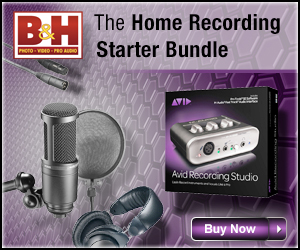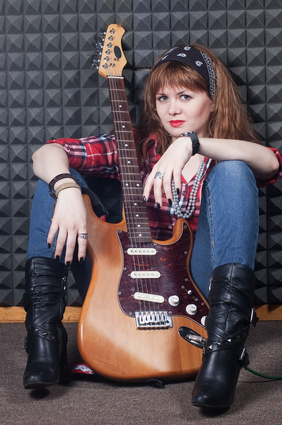This is an excerpt from a course on the excellent Lynda training site. It’s about microphone directional response. I wrote and article about this here – Directional and Omnidirectional Microphones – What Are They Good For? . This video (below) is a great additional piece to help you better understand the same topic. Understanding how a microphone pics up sound is pretty important in both recording and live sound. You can achieve a lot of cool stuff, like lowered noise (with a cardioid’s “null” pointing to the noise source), by knowing the polar pattern of your microphones.
Check out the video on microphone directional response below:
Archives for October 2012
7 Free Audio Recording Software Programs
I found an article that lists seven free audio recording and/or editing programs, which is pretty amazing. I knew about one or two but seven? Wow. Of course Audacity is at the top of the list. I definitely knew about that one. You can learn how to do all the basics of audio recording with Audacity in our beginners tutorial course The Newbies Guide To Audio Recording Awesomeness.
In addition to Audacity, the article lists six more programs you can use without paying a cent. Who says it’s expensive to set up a home recording studio?
See that list here: http://www.cometdocs.com/blog/7-great-free-options-for-audio-recording-and-editing
Have fun with your free recording studio!
Keep Up On The Latest Audio Recording Gear Arrivals At B&H

B&H Pro Audio sent over a new tool for publishers like Home Brew Audio to show our readers the newest pro audio gear arrivals in real time. This is a very cool tool that will update automatically whenever new gear arrives in the store, available for you to order.
Check it out here: https://www.homebrewaudio.com/pro-audio-gear-new-arrivals/
There is a link to this page in our site’s navigation bar on every page – says Pro Audio Gear – New Arrivals.
B&H have also told me that they plan to expand this capability to include other information that might be of value to you, such as audio gear with discounts, rebates and free shipping.
B&H usually has the lowest price on the internet for audio gear, so we hope this will help you keep up on the latest gear for the lowest price.
Electric Guitar Recording Tips
 I read an article this morning that was actually about 6 mistakes people make when recording electric guitar. But I found myself mentally defending several of these “mistakes,” remembering or imagining situations where it would be just fine to record electric guitar that way. As usual in the audio recording world, the real answer is it depends.
I read an article this morning that was actually about 6 mistakes people make when recording electric guitar. But I found myself mentally defending several of these “mistakes,” remembering or imagining situations where it would be just fine to record electric guitar that way. As usual in the audio recording world, the real answer is it depends.
In Bjorgvin’s article, he lists 6 things he recommends people try to avoid. One of them is is recording through a DI (direct inject) box using an amp simulator. Hey, that’s my primary method of recording electric guitar. But for me it works. I’m not in a rock band and my albums don’t usually have electric guitar on them. I use it to record demos and covers and other cool things (like my recording of “That Thing You Do!” from the movie of the same name – which you can see here) mostly to teach folks how to do audio recording. I understand what Bjorgvin is saying though. Recording through an amplifier and recording with a mic (or multiple mics) is the traditional way to do it. And if I were in a band and wanted to record the songs I’d been playing live, I’d want to record it just like I played it live – with the same amp on the same settings, etc. So the answer is – it depends.
Another thing on the list is to avoid compressing too much on the way in. Well, I would say that doing anything too much while recording would be properly called a mistake. But sometimes extreme compression is the sound the guitarist is going for. Sure, less compression allows a sound to breathe more. But breathing is not always the desired sound. Tom Scholz, of the group Boston is famous for his extremely compressed electric guitar sound. Again – it depends on the situation.
See Bjorgvin’s list of 6 tips for recording electric guitar here: http://www.audio-issues.com/recording-tips/electric-guitar-recording/
Sound Forge Pro Audio Editor Now Available For Mac
Sony Sound Forge Pro has long been a staple audio editing program – basically the industry standard. But since its inception these 15 or so years ago, it has not been available for Mac users. That has finally changed.
Sound Forge Pro Mac – designed for OS X, is now available. Can I get a halleluja?
A new license is $269 (compare this to Adobe Audition – my main editor – which costs $317.98).
If you already have Sound Forge Pro for PC, you can cross-grade to the new Mac version for $239.